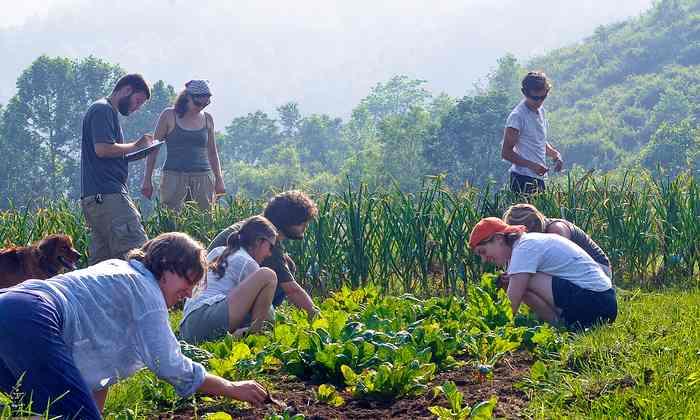As Seen on The Guardian: How to Help Young People Prepare for Careers in Sustainability
Want your children or students to be ready for the new kinds of jobs that are only now being invented? These four steps will help you help them get that dream green gig

As Seen on The Guardian: How to Help Young People Prepare for Careers in Sustai…
There’s a green shift happening in the workplace as sustainability- and conservation-focused jobs grow across all sectors. Pathways to these positions are constantly evolving, though, and it can be daunting for students to map out their career paths.
So the National Wildlife Federation (NWF) is helping to educate and engage young people interested in sustainability jobs. Ahead of NWF’s EcoCareers Conference, here are four steps students can take to help get that dream green job.
Declare a personal mission
By assessing their own strengths, values, skills and interests, students gain clearer pictures of the types of careers they’d find fulfilling. Then they can craft personal mission statements that clarify their life purposes. For help, they should use assessment tools like the US Department of Labor’s Skills Profiler, the 16 Personalities NERIS Type Explorer, the O*Net Interest Profiler and the Internships.com Internship Profiler.
“Declaring a personal mission is one of the first steps toward effective lifelong leadership because it is about clarifying our vision and goals and helps avoid the eddies and distractions along the way,” says Julian Keniry, senior director of the NWF.
The mission plan will also come in handy if college classes or the job market get daunting. “Don’t lose sight of what motivated you to begin this path … establish a mission statement, core values and strategic plan for yourself,” says Sean Hackett, an environmental protection specialist at the Colorado Department of Public Health and Environment. “Identify what you’re willing to compromise on and where you draw the line.”
Research trends
Workplace experts and public officials say jobs are growing thanks to the green economy. In Science Magazine, for example, former US President Barack Obama said the clean energy sector was expected to continue to grow because of lower costs and technological advancements.
Water, food and clean energy jobs are also expected to rise, say green jobs experts Lisa Yee and Kevin Doyle, particularly in data, permitting, financing and facilities management. The number of specialized sustainability roles will also increase in product management, responsible purchasing and sustainable communications, according to jobs analyst Katie Kross.
Amazon, Google, PepsiCo and other corporate giants are specifically scouting for sustainability skills. They’re looking to fill positions like sustainability software development engineers, sustainable supply chain program managers, and sustainability business intelligence and data governance managers.
“At General Motors, we believe sustainability is a part of everyone’s job,” says Bridget Burnell, the carmaker’s manager of global sustainability initiatives. “We want our 215,000 employees to be equipped with this mindset, and we’re eager to work with new hires who will work to further embed sustainability into their various departments.”
Create a plan
After figuring out a few potential careers, students can plan how to meet academic requirements and acquire credentials. Having and frequently updating an intentional and personal career plan helps students compare educational institutions, internships and job offers.
“I recommend that people find a specific dimension of sustainability about which they are passionate, and … really build their expertise in that particular area so that they can be an effective advocate on that dimension,” says Julian Dautremont-Smith, director of programs at the Association for the Advancement of Sustainability in Higher Education.
Make connections
As the old adage says, it’s all about who you know – so students should request informational interviews or even casual conversations over coffee with professionals in their field.
“It’s important to talk to people. I haven’t met someone in the food movement who wasn’t willing to talk, share their experiences and hear about yours,” says Gideon Burdick, marketing and development associate at Red Tomato. “Find those that you respect and learn from them. Making the offer to engage can go a long way.”
Professional associations, meanwhile, often have reduced-cost memberships for students. The International Society of Sustainability Professionals, the American Water Works Association and the Association of Energy Engineers offer workshops, certifications, conferences and other networking opportunities.
Burgeoning green economy professionals can learn more about job trends and career plans by attending the National Wildlife Federation’s EcoCareer Conference online on 22-23 February. They’ll get insights from Doyle, Burnell, Keniry, and more than a dozen other experts from Aramark, Jobs for the Future, The Corps Network, The Wildlife Society, the US Green Building Council and other organizations. Click here to register.
Reposted from TheGuardian.com/General-Motors-Partner-Zone with permission.

